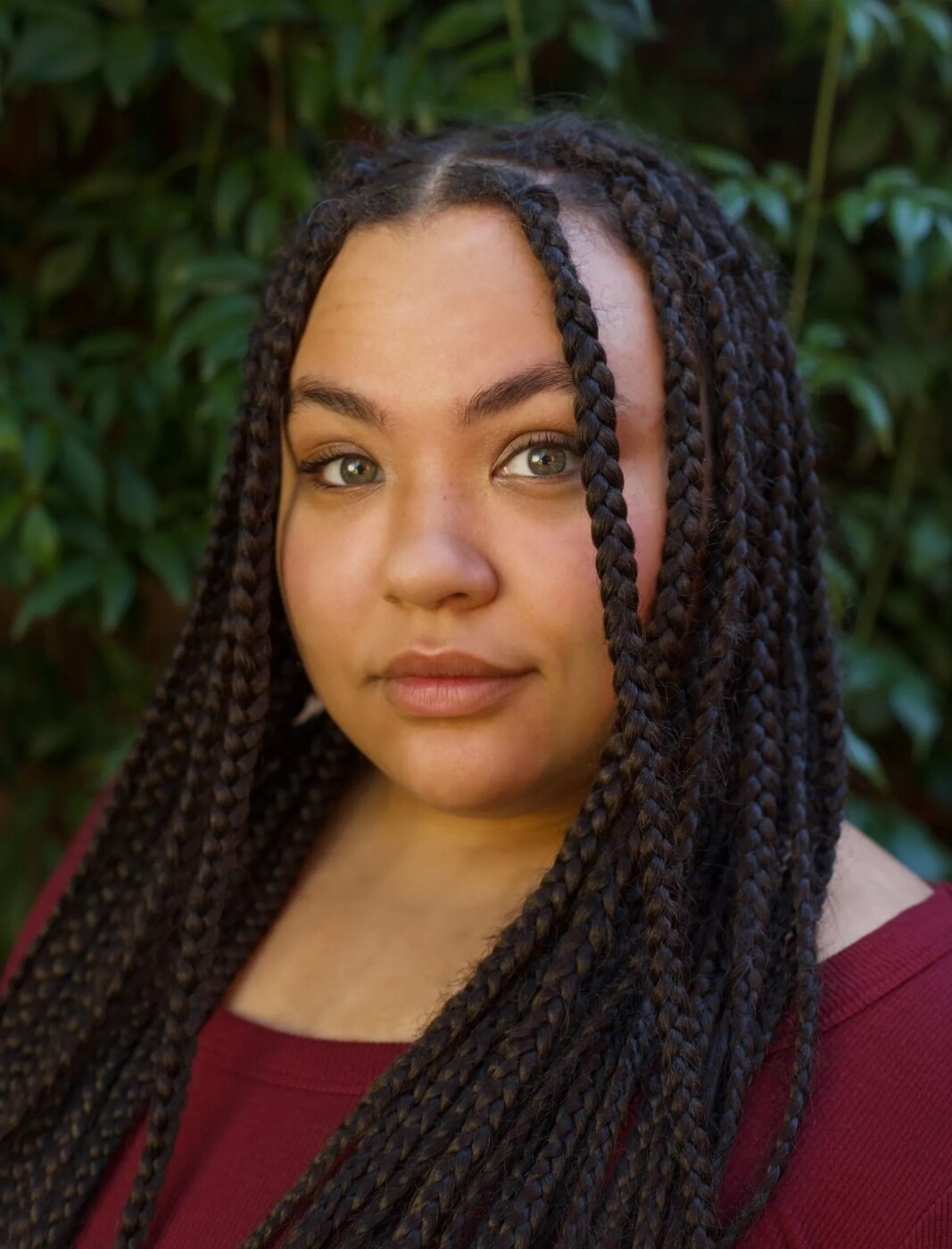Oakland writer and poet Leila Mottley’s 2022 debut novel “Nightcrawling” received a swift, sensational response. The story of gentrification, racism, abuse and police corruption wrapped around the life of a Black teenager in East Oakland was a New York Times bestseller, Oprah Book Club selection, long-listed for the 2022 Booker Prize, and earned “best book of the year” designations from The New Yorker, The Washington Post, TIME and other publications.

Many expected and hoped Mottley’s next move would be to pump out book two. Instead, she returned to her roots as a poet and the privacy of composing poems. Mottley, the 2018 Oakland Youth Poet Laureate, was known for powerful slam poetry appearances on the vibrant Bay Area spoken-word circuit.
Emerging from the writer’s cocoon in April 2024 with “woke up no light” (Knopf, $28,128 pages), Mottley clearly is a writer who does not hide or harbor herself through fear. The debut poetry collection is divided into four categories: girlhood, neighborhood, falsehood and womanhood. The poems arc with raw energy, describing lives of Black girlhood, careening through neighborhoods, shattering lies and distorted racist misperceptions of young Black women, and simmering in the minds of Black women (fictional, ancestral or historical) before bursting into revelation, liberation and joy.
While the volume is remarkable in its narrative stride, each poem is a vignette of singular perspective, offering evidence of Mottley’s command of poetry’s vast architectural and language possibilities.
Mottley writes her poems longhand first, sharing that her handwriting is sloppy and oversized: “I wanted to get in touch with what my poetry looks like written on a page, not a printed document. I started to think about white space as silence. I read a block text poem differently than one written in couplets. I think about how the eye moves and influences what we read. This book was teaching myself to love poetry again. It’s a coming back and a beginning. I got to write poetry and feel good about it for the first time since I was 16,” she says.
The attention on “Nightcrawling” was marvelous, intense, public and exhausting. Mottley says while poetry offers less to hide behind as a written form, it also allows her to work in seclusion and find her way back home without outside scrutiny.
Offered the label of “a historian of place (Oakland) and time (multiple eras),” she favors the descriptor: “I definitely see a component of my work as archival. There’s a beautiful tradition of Black women poets who’ve acted on the idea of history, filled in gaps where we aren’t present. From Robin Coste Lewis to Tracy K. Smith to others, poets have looked at and seen ways we aren’t captured in complexity, nuance and fullness. They expand on an archive that’s narrow and limited. In the end, what we think of as fact is just narrative. There is no text without bias. Black women use writing as a way to mend history and put their stamp on it.”
Mottley’s stamp is multigenerational. She uses ancestral voices, but also speaks as a young person trying to find hope and a future in a world that feels as if it’s on the brink of collapse: “My work is about youth. How we move forward. We’re grappling with the idea of no guarantees that any of our actions have enough impact to reverse time. What does it look like to build here, to have a child, face death? Living within the question is part of what it means to be a person right now. Will the world even be here in 50 years?” she asks.
Crisis, emergency, oppression, social and civil rights injustice and terrifying urgency—and history proving it’s possible to survive—cause her to say, “Sometimes, disaster is what we need to figure out how we will be in the face of it and after.”
Addressing the new collection, Mottley says the “hoods” represent to her the idea of open community and belonging, but also covering and shielding. The poems in “womanhood” were written last. She says that section was “true, honest, and more fun than the rest.” It is a mirror of her present self at age 22 and versions of the Black woman she imagines and wants or is determined to inhabit.
Speaking about three poems selected from different sections, Mottley’s thoughts reveal an overall focus on fluidity and form, but not at the expense of forcefulness.
“Wet Nurse” is about Black women who devote their work and literal bodies to people other than themselves. Two columns of five-line stanzas can be read horizontally or vertically. The fragmented form and choices left up to readers parallels the way Black women’s lives and identities are often fragmented and left for others to divide.
Split existence also winds its way through “Crow Call,” a poem about the duality of Black women living in historically segregated America, which today claims to be desegregated, and finding it hard to belong. “Under the Tongue” takes memory deeper along twisted pathways. “It’s painful to sit in a memory,” she says. “The very pure idea of presence is terrifying. As soon as a memory happens, it’s already being changed.”
Meaning in poetry is hard for poets to talk about, she suggests, despite having done so with considerable, easy eloquence in an hour-long interview.
“We leave it open to interpretation on purpose. Poetry belongs to whoever is reading it,” she says. Even so, centering Black women, giving them a place to be hurt, cry for themselves instead of only for Black men, and permitting them joy and liberation as a resistant practice remain essential to her work.
Mottley is completing final steps before releasing her second novel. “The Girls Who Grew Big” comes out in June 2025. She says, “I’m prepping for that and excited to have a new book exist in the world.”
The post Leila Mottley pivots back to poetry with new collection ‘woke up no light’ appeared first on Local News Matters.
